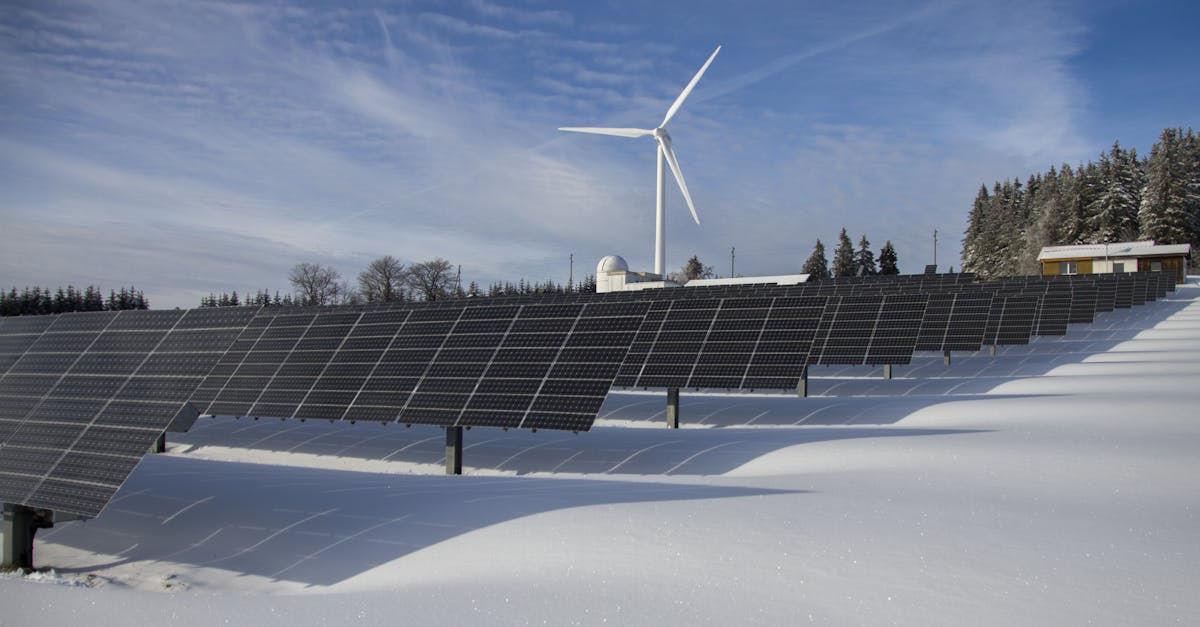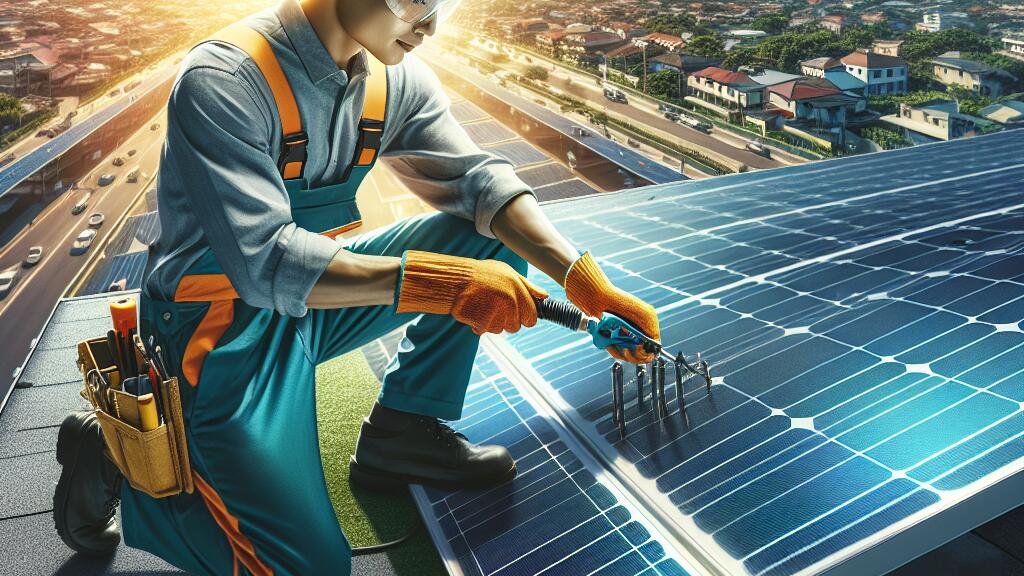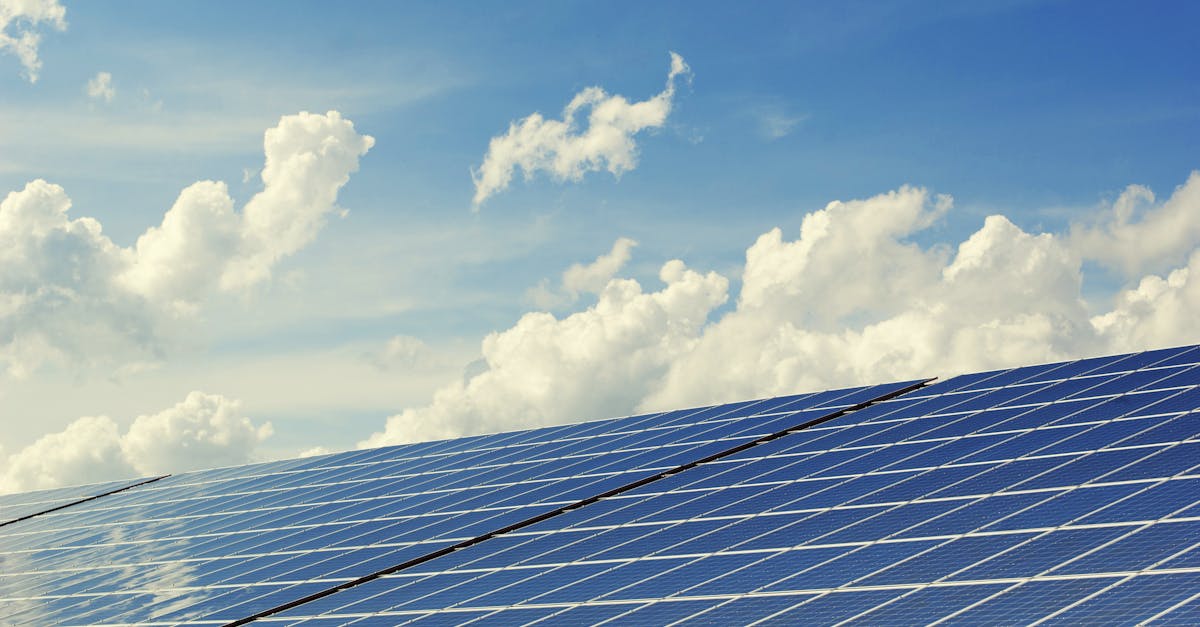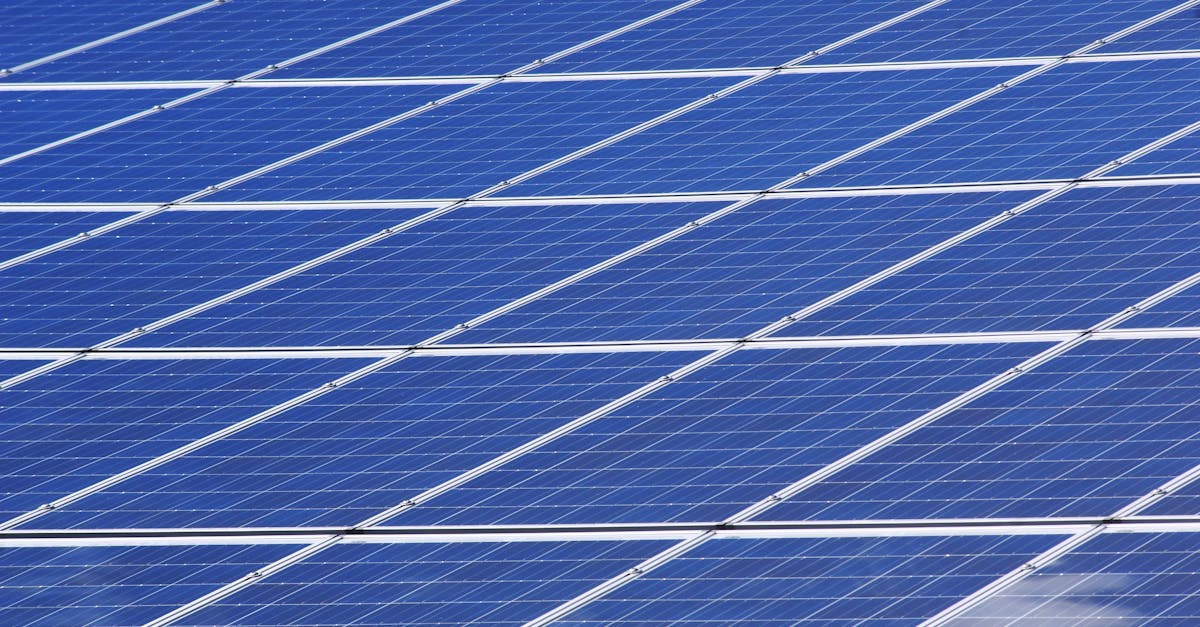
Table Of Contents
DIY vs. Professional Cleaning Services
Cleaning solar panels can be a straightforward task for homeowners who choose a DIY approach. With the right tools and safety equipment, individuals can effectively remove dust, debris, and bird droppings. Using a soft brush and non-abrasive cleaners minimises the risk of damaging the panels. Regular monitoring allows homeowners to decide when cleaning is necessary based on environmental conditions. Managing solar panel maintenance personally can offer a sense of accomplishment along with potential cost savings.
On the other hand, professional cleaning services provide expertise and efficiency that may not be achievable through DIY efforts. Trained technicians possess the skills and equipment required for a thorough clean, ensuring that every inch of the solar panels is attended to without causing harm. They can also identify any underlying issues during the maintenance process. While this option incurs a financial cost, the peace of mind and enhanced performance of the solar panels may justify the expense for many homeowners.
Weighing the Pros and Cons
When considering solar panel maintenance, one must evaluate the advantages and disadvantages of both DIY and professional cleaning services. Opting for a DIY approach can save costs and provide flexibility in scheduling. Homeowners may feel empowered by taking the task into their own hands and could even learn more about the workings of their solar systems in the process. However, the effectiveness of DIY cleaning may vary based on individual skills and knowledge, leading to potential damage to the panels if not done correctly.
On the other hand, professional cleaning services offer expertise and efficiency that may be difficult to replicate on a personal level. Trained technicians possess the right tools and techniques to ensure thorough cleaning while minimizing any risk to the system itself. Despite the associated costs, the benefits of a proper job can significantly enhance the performance and longevity of the solar panels. Each household must weigh these pros and cons to determine the best approach for their solar panel maintenance needs.
Common Myths About Solar Panel Maintenance
Many homeowners believe that solar panels are self-cleaning, relying solely on rainfall to keep them clear of debris and dust. This assumption can lead to significant reductions in efficiency, as accumulated dirt and grime can block sunlight. Regular cleaning is an important aspect of Solar Panel Maintenance to ensure optimal performance throughout the year.
Another common myth is that cleaning solar panels can damage them. When done correctly, using the right tools and techniques, the cleaning process can be safe and effective. Neglecting proper Solar Panel Maintenance due to fears of damage can actually lead to more substantial long-term issues, including decreased energy output and potential costly repairs.
Debunking Misconceptions
Many homeowners assume that solar panels are self-cleaning. This belief arises from the idea that rain will wash away dirt and debris. While rain can help remove light dust, it is often inadequate for more stubborn contaminants like bird droppings, pollen and leaves. Relying solely on natural precipitation can lead to a significant drop in efficiency over time, highlighting the importance of regular Solar Panel Maintenance.
Another misconception is that cleaning solar panels could damage the surface. Some people worry that using the wrong equipment or harsh chemicals will result in scratches or a voided warranty. In reality, proper cleaning techniques, such as using soft brushes and mild soapy water, can safely maintain the panels without causing harm. Understanding the fundamentals of Solar Panel Maintenance helps in alleviating these concerns and ensures optimal performance.
Seasonal Considerations for Cleaning
Different seasons bring varied challenges and opportunities for solar panel maintenance. In winter, snow accumulation may obstruct sunlight and reduce energy output. Regular inspections during this season are advisable to ensure that panels are clear of snow and ice. Conversely, summer often brings dust and pollen, which can settle on panels and hinder efficiency. Monitoring the solar panels during these warmer months is essential as well.
Spring and autumn also present unique cleaning considerations. Spring can lead to heavy rainfall, which may help wash off dirt and debris but can also create puddles that encourage the growth of algae or moss. Autumn leaves can be particularly troublesome, as they tend to accumulate and block sunlight if not removed promptly. Recognising these seasonal patterns can aid homeowners in planning their solar panel maintenance effectively, ensuring optimal performance throughout the year.
Adapting to Weather Patterns
Weather patterns play a significant role in determining how often solar panels require cleaning. Regions with frequent rainfall may experience natural rinsing, reducing the need for regular upkeep. Conversely, areas with minimal rainfall may accumulate dirt, dust, or debris, necessitating more frequent solar panel maintenance to ensure optimal performance.
Seasonal changes also influence the accumulation of organic material such as pollen or leaves. Spring often brings an increase in pollen, while autumn can lead to a layer of fallen leaves. Homeowners should adapt their solar panel maintenance schedules according to these seasonal trends, ensuring that their systems are frequently monitored for efficiency and cleanliness throughout the year.
FAQS
How often should solar panels be cleaned?
Solar panels typically need to be cleaned every 6 to 12 months, but this can vary based on local weather conditions and environmental factors such as dust, pollen, and bird droppings.
Can I clean my solar panels myself?
Yes, you can clean your solar panels yourself, but it’s essential to follow safety precautions and use appropriate materials. Ensure you use non-abrasive tools and avoid harsh chemicals.
What are the signs that my solar panels need cleaning?
If you notice a significant drop in energy production, see visible dirt or debris on the panels, or if they appear to have a cloudy film, it may be time for a cleaning.
Will rain clean my solar panels?
While rain can help remove some dirt and debris, it is often not sufficient to completely clean solar panels, especially in areas with high pollution or dust accumulation.
Is professional cleaning worth the cost?
Professional cleaning services can be beneficial, especially for large installations or hard-to-reach panels, as they ensure thorough cleaning using the right techniques and equipment, potentially improving efficiency.


